Events/Promos
Official Chart
Reach out

- online@channelx94.com
- Channel X94 Facebook
- (435) 781-1100
- 29 South Vernal Ave. #2 Vernal, Ut 84078
Channel X94 7.2k Listeners
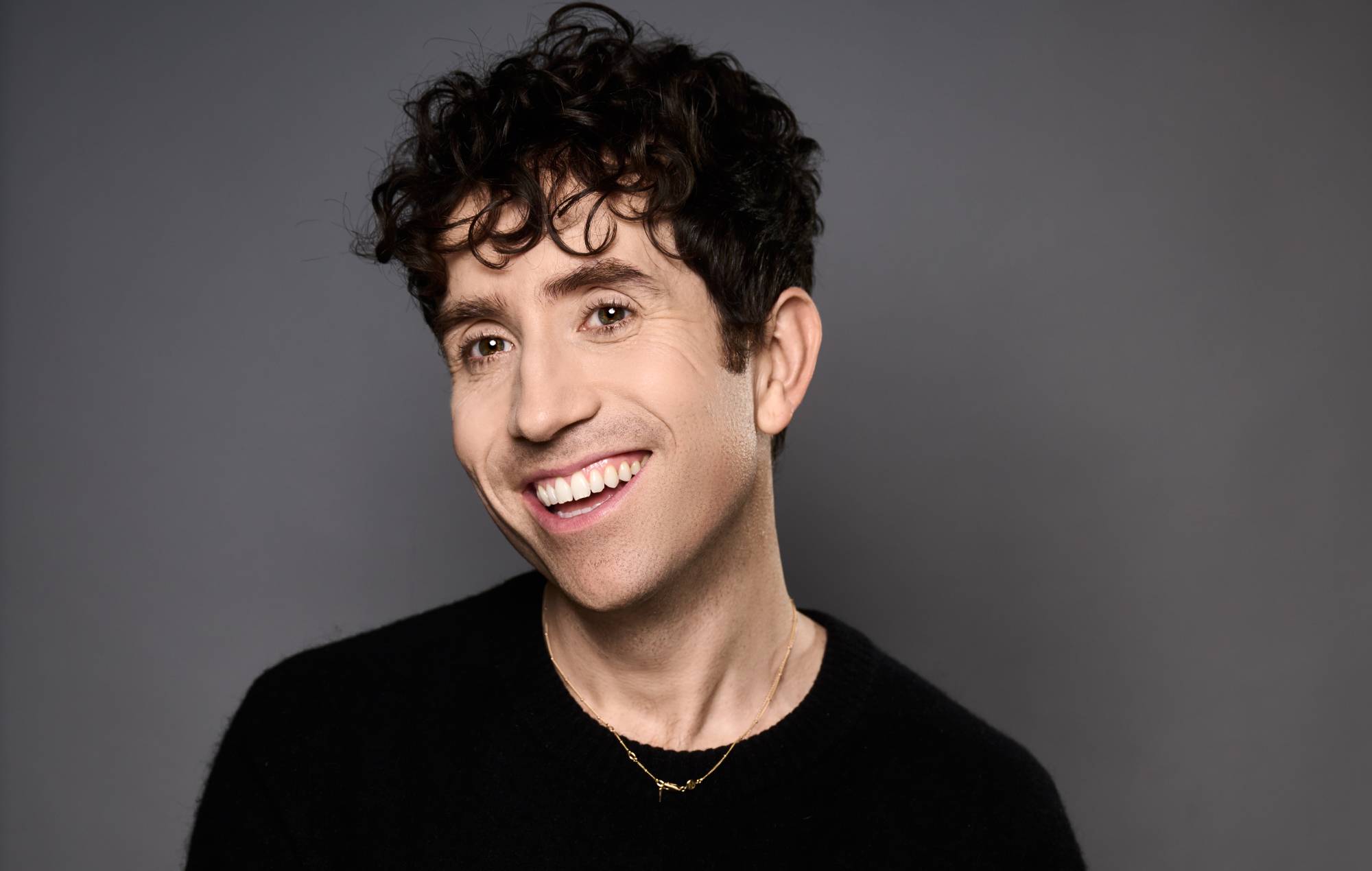

Nick Grimshaw has spoken to NME about stepping into his role as host of the coveted BBC 6 Music breakfast show in place of Lauren Laverne – as well as sharing his advice for aspiring radio DJs.
Last year saw Laverne take a hiatus from her radio duties after sharing her cancer diagnosis. The host and former Kenickie star announced that she had been given the “all clear” back in November, before the new daytime schedule was revealed with her hosting a new mid-morning show and Grimshaw taking over the breakfast slot after his tenure of standing in for her.
“I just want it to start now,” said Grimshaw, meeting NME in the 6 Music studio the week before his new full-time show kicks off. “I was only meant to do it for a week, and I was really nervous to do it because I love 6 Music. I’ve always listened to it – and listened to Lauren. Given the circumstances, I really wanted to get it right for Lauren and for everyone like me who tunes in every day.
“I really enjoyed it. I had a week of nausea prior, and then as soon as I started it was fantastic. I got asked to do another week, then another, then it added up from August to January. It sort of happened naturally, and it was a joy. It was the perfect ‘welcome back to radio’ for me and the dreamiest way to start a day: by listening to three hours of amazing music.”
Grimmy – whose career has also seen him host the BBC Radio One Breakfast Show, Channel 4’s Freshly Squeezed with Alexa Chung and Jameela Jamil, and the Sidetracked podcast with Annie Mac – said that being part of the 6 Music family felt more like a “community” than his previous endeavours due to the investment of the listeners and teams behind it.
“It’s the type of radio station where you put it on, and you leave it on,” he said. “It’s made by music fans, and there’s a nice inquisitive nature to it. You always want to learn about new music and new artists but also to learn from interesting guests and veer into events, exhibitions and films. It’s for a like-minded listener.”
Check out our full interview with Grimshaw below, where the DJ tells us about his journey and work ethic, the pressure of his new role, and how “people can tell if you don’t love music”.
NME: Hello Nick. Did you find that people were quite possessive and emotional about the 6 Music breakfast show when you stepped into it?
Nick Grimshaw: “Yes and no. I think people were really welcoming. People, myself included, are very emotionally attached to Lauren because she was the first person you’d hear in the morning. Morning radio is quite important because you don’t want to jump straight out of bed and into your job every day. It can be a lifeline to a lot of people. If anything changes on morning radio, like moving a feature to a different half hour, people would go mad. ‘I can’t believe you’re doing this at 8.10am instead of 7.50am!’”
You might as well throw a grenade in their corn flakes…
“Yeah, exactly! Any change on breakfast radio feels big because you’re so into your routine. It’s probably the most routined part of anyone’s day: alarm, breakfast, radio, shower. There was definitely some passionate opinion, but I love 6 because people care. They see it as their station, as they should. I’ve got to say that I was expecting more horribleness than I received. The listeners were really welcoming and understanding. They were all reaching out to send really supportive messages – sending love to Lauren, and it was encouraging to feel that people were arsed.”
Do you think people would see through you if you didn’t have your credentials as a music fanatic?
“I think so! You can tell if people aren’t obsessed with music. People can tell if you don’t love music.”
Tell us about your young musical education…
“I was the youngest of three; I’ve got an older brother and sister. They were like 11 and 13 years older than me and I just idolised them as a kid. I idolised everything that they did. Even before I could understand what they were doing and where they were going – I’d hear them talking about going raving or to [iconic Manchester club] The Haçienda – I’d be under 10 and think, ‘Why can’t I go?’ I didn’t know what a rave was, but I really wanted to copy what they were doing.
“My brother got me into loads of great stuff. He was a big fan of Joy Division, Echo & The Bunnymen, Kraftwerk, De La Soul, NWA, a lot of Chicago house music. My sister loved a lot of house and electronic stuff and I vividly remember her driving me around and getting into ODB and Mariah Carey on ‘Fantasy’.
“I always thought that I didn’t like my dad’s music when I was little, but that’s just a primal response, isn’t it? I got to 18 and I realised he was right. My dad only liked a few people but they were spectacular: Bill Withers, Ella Fitzgerald, Bob Marley, Simon & Garfunkel, Frank Sinatra. When I would go to get the NME or The Face or to watch MTV at my friend’s house, he didn’t get that obsession. When I’d buy CDs or vinyl he’d say, ‘You’ve got enough!’ He was born in 1941 so maybe it all seemed frivolous to own more than you need.”
How big a role did Manchester play as a music city?
“Growing up in Manchester, there was a sense of pride in going out. I was born in ‘84 so by the time I was in secondary school in ‘95, Britpop was happening and there was The Haçienda/New Order/Madchester hangover that the city was really proud of. Everyone above me was really proud of going to these shows, then it was Oasis.
“I remember getting ‘Definitely Maybe’ from my brother, who lived in the same block of flats as Noel Gallagher. He was talking about this band and playing it at our house and I remember my dad being like, ‘Poor man’s Beatles!’ My brother was furious. That happened at the perfect time for me: getting into ‘Definitely Maybe’ and trying to have the Liam Gallagher haircut and parka.”

How did you make that leap from being a music obsessed kid to wanting to be a DJ and become a conduit for music?
“I wasn’t really good at anything at school. I didn’t excel in any subjects. I was fine, but there was no clear thing that I wanted to do. When I was about 10 I thought I could be a performer or a singer or in a band. My brother bought me a guitar and I tried to write some songs but I had no attention span to learn and a horrible singing voice – which I still retain to this day.
“I was in pre-teens and we had one telly in the house with four or five channels. Whatever mum and dad were watching was what we had to watch, so I really loved radio because I could have a radio in my room. It was a place where I could go and listen to what was the opposite of what my mum and dad wanted to listen to.
“I fell in love with Radio One, and at the time there was a good array of Northern voices on it: there was Chris Evans and I loved Sara Cox. The breakfast show felt very free and chaotic. You’d hear stories of nights out, parties and gigs that they’d been to. Then I’d listen to John Peel at night and genuinely thought I’d discovered this little-known cool DJ! I loved how honest it felt on his show because it never felt too ‘presented’. It was just him playing songs he liked and talking a little about the bands. It just felt like a real escapist few hours for me in my bedroom.
“When you get to 16 and start thinking about a career and what you want to do, Sara Cox was on the breakfast show talking about Missy Elliott and The Chemical Brothers. It was exactly what I was listening to and exactly the sense of humour that I loved. It was just on the cusp of me going clubbing and it really cemented that I wanted to do radio. I couldn’t do anything, I didn’t know what to do, but I loved talking, music, parties, people and bands. Could I do that? I never said it out loud, but in my head I really wanted to do the Radio One breakfast show.”
How did you get there?
“I needed experience, so I applied for work experience at Radio One and got a rejection letter – which my mum weirdly framed for me! I just wanted to do something creative so I applied for everything. I ended up getting a job at a music plugging company where I’d work during half term and holidays while I was at college and uni. That would be summarising a press release into a blurb, making a sticker, and sticking onto CDs to sort the mail-out.
“I loved that, and I’d not had anyone in anyone in my family or my universe did anything creative – so I just liked knowing that this creative industry existed. When I started working there and taking bands to radio interviews, I remember thinking ‘Maybe I could do this’.”

Did you always feel like a career in music and radio was in reach for a kid from Oldham?
“I don’t know. You’re quite fearless when you’re young and don’t overthink it. I just thought it was going to happen. I was ambitious, I went and did work experience everywhere, I did student radio, assisted at radio stations, worked as a runner on TV shows. I just thought it would all be useful to see how people interact and what the working day was like.
“I ended up thinking that I needed to be in London for this to happen because there was a lot less of an exciting BBC world in Manchester at the time. I had to get to London to facilitate this Radio One idea, then I applied for every job in London and ended up being an intern at MTV. It was away from radio but felt useful. I ended up flyering for clubs and eventually it did veer back.”
When you did get the Radio One Breakfast Show job, did you have imposter syndrome and the fear that it could all be taken away?
“I definitely had a sense that it could all be taken away at any moment. Again, I didn’t really think about it at the time. I remember doing my first Sunday night show with Annie [Mac]. I remember I went in for five minutes and had to talk about what gigs I’d been to and what music I’d been listening to that week.
“I remember doing that, and that feeling like a really crazy and overwhelming experience because I’d spoken on Radio One. That felt more seismic than the breakfast gig. By the time I’d gotten around to doing it, I’d done three years on nighttime when it didn’t feel like I’d ever get there.
“When it all finally happened, I remembered thinking that I was a witch because I’d said it and then it happened. I had an existential crisis, but it felt half unbelievable and half the realisation that it was the thing I’d been thinking about since I was 13 and working towards since I was 17. Here I was at 27, after all that thinking and work.”

The way that people discover and consume music has changed so much over the last 20 years. Has the changing role of radio changed your approach to what you do?
“It has changed so much. I remember when Chris Moyles did breakfast before me, there was no Youtube. In terms of what we do, I don’t change how I talk about stuff. It’s good in that when we play something good, people can fall into that hole right then and there. For me as a listener, I rely on a DJ more now because I need someone to cut through the shit. I need a curator more, but I don’t know if it’s made me change.”
There were a lot more bands around in the ‘00s and early 2010s, and the grassroots is currently in a scary place. How do you feel about an act’s ability to break now?
“I could really go under thinking about the state of things. I don’t want to sound like an old fogey, but in my day you would go out and take a chance on seeing a band. Growing up in Manchester, living in Liverpool and then moving to London, there was so much more happening on a nightly basis where you’d pay £6 to take a chance on seeing a band. It’s the dream way to fall in love with a new sound that you’ve not heard before.
“The venues shutting is really depressing and disheartening. The rate at which it’s happening is devastating. They can’t afford to keep them open and artists can’t afford to play them. I don’t know what needs to happen, but it’s bleak out there.”
And that’s why we need radio like 6 Music more than ever?
“It totally is. We get to champion unknown people and play songs by artists who may only have one track out and not be signed to a major. There’s so much talent and we can to play such a huge amount of music.”

You’ll be heading back to Manchester with 6 Music Festival this month. How does it feel to be going home with that line-up in your new job?
“I’m really excited. I’ve not lived in Manchester since I was 17, and I’m 40 now. My family have already been on at me asking about tickets. It’s where I fell in love with going to gigs and the club scene. It’s good to go back with purpose rather than just to have a roast round my mum’s The line-up is really great – Perfume Genius, SBTRKT, Marie Davidson, Mogwai, Ezra Collective. It just really showcases why 6 Music is so good in getting this all-encompassing line-up along with the indie forever club night and Jamz Supernova.”
What are you listening to at the moment?
“I’ve also been listening to the Kelela live album, the John Glacier record, Decius, new ShyGirl, Baalti have this song called ‘Overbit’ which I love, and Jacob Elana.”
“I’m obsessed with Marie Davidson at the moment. I asked if we could do a show from my mum’s house with Marie Davidson coming round for a roast and she said, ‘Absolutely no way! I’m not being a laughing stock on 6!’”
Nick Grimshaw presents the 6 Music Breakfast Show (weekdays 7-10am) from Monday February 24, and will broadcast from the 6 Music Festival in Greater Manchester between March 26 and 29.
The post Nick Grimshaw on his new 6 Music radio show: “People can tell if you don’t love music” appeared first on NME.
Written by: Brady Donovan
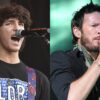


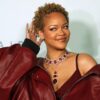
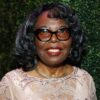
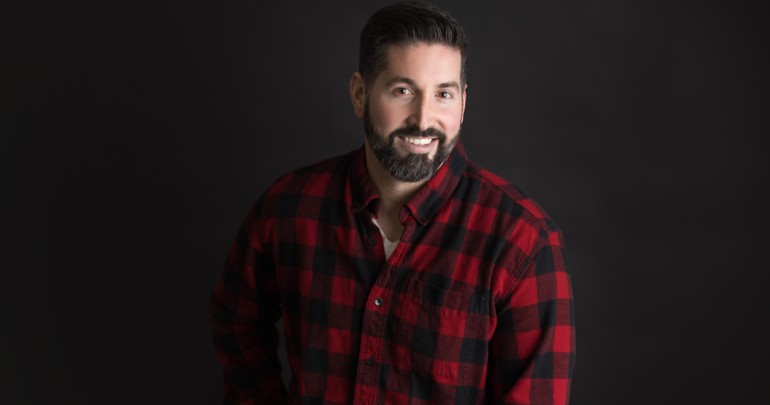
The afternoon show is a fun mix of Top 40 hits and fun show segments getting you through your work day Monday-Saturday from 2p-6p.
close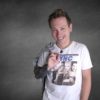
With Chris Cruise
6:00 pm - 12:00 am
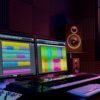
12:00 am - 5:00 am
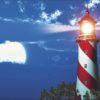
With Carl Watkins and Glenn Rawson
5:00 am - 12:00 pm

1:00 pm - 12:00 am

12:00 am - 2:00 am

© 2024 Channel X94 | All Rights Reserved